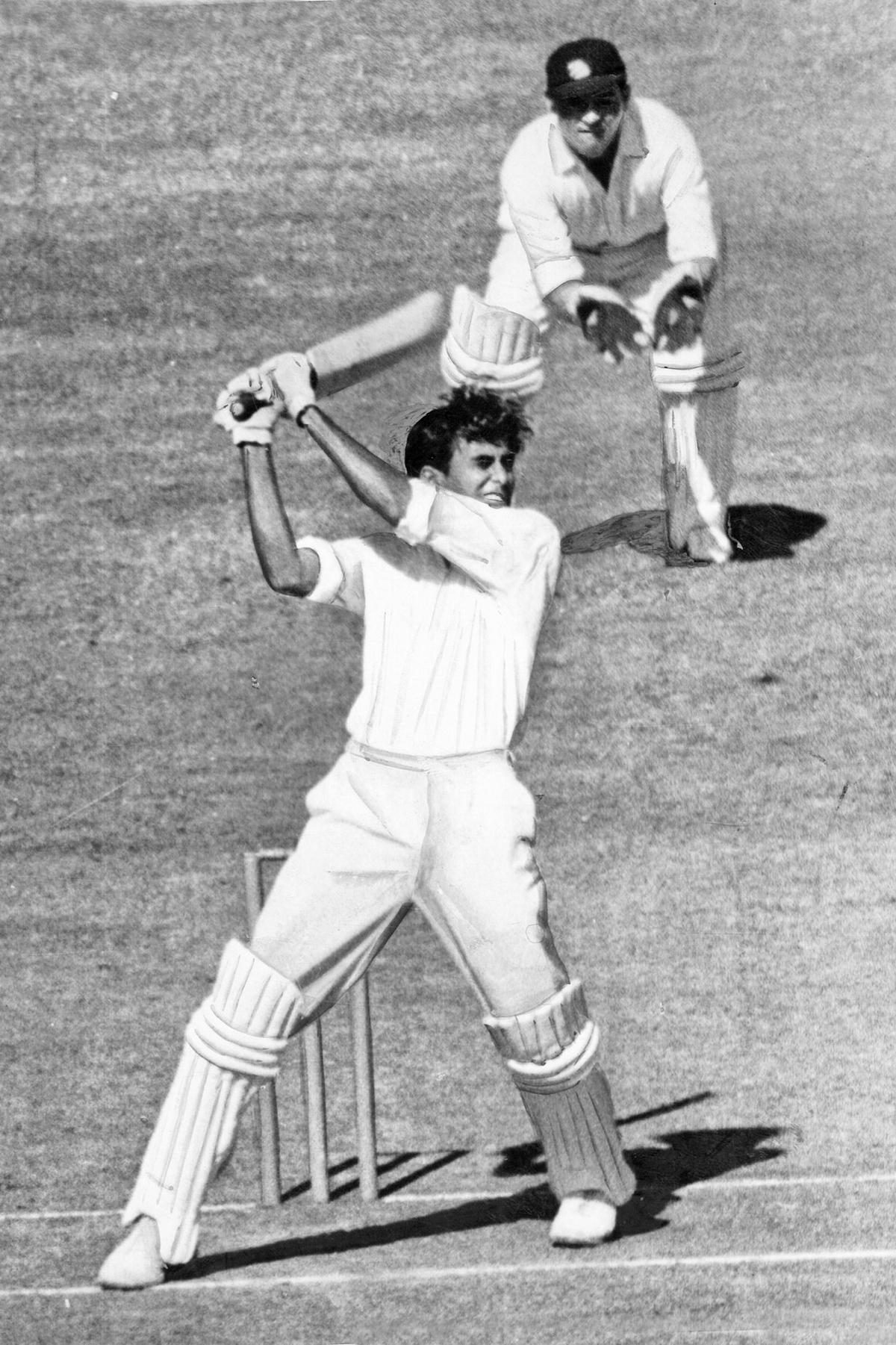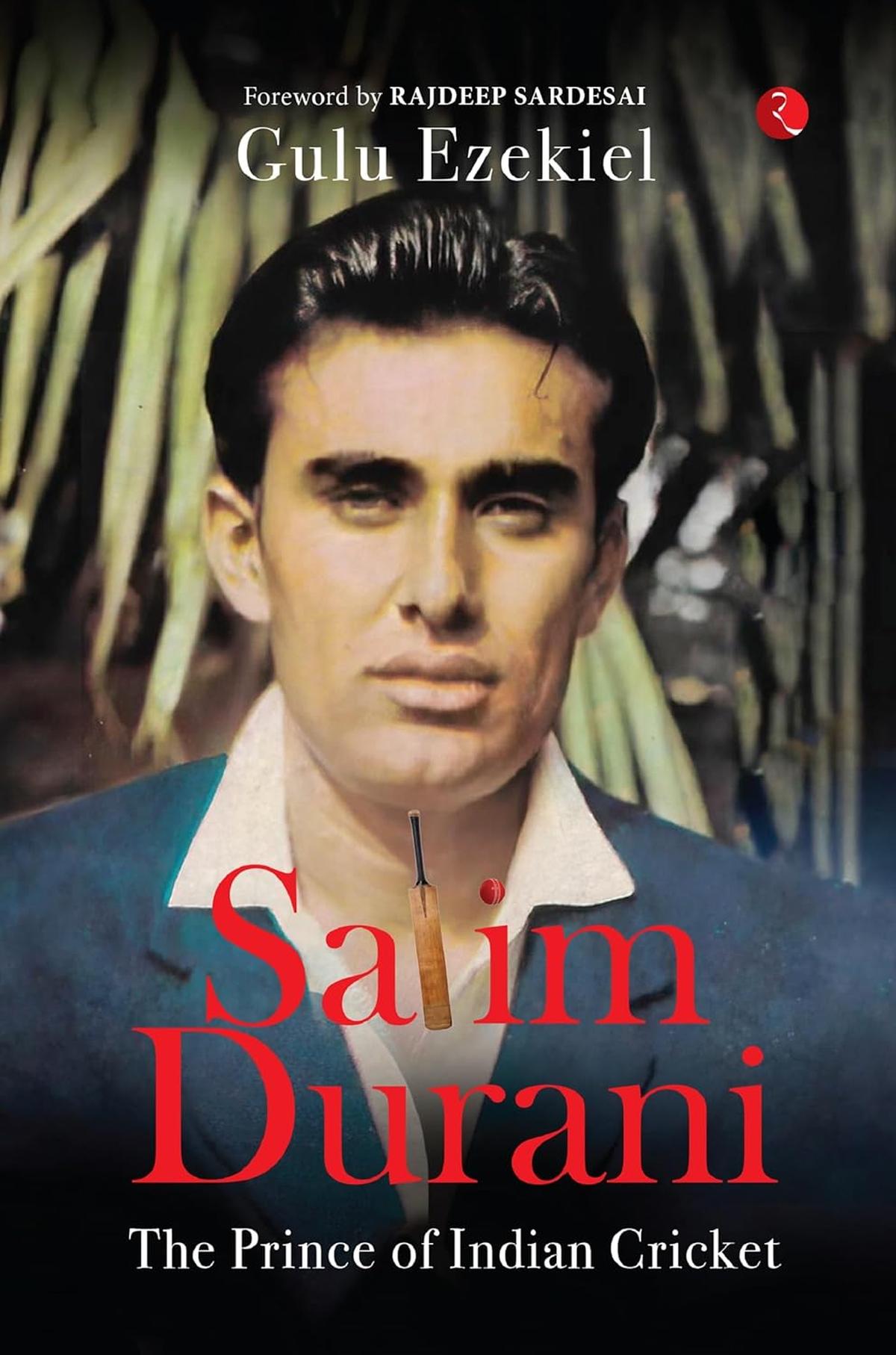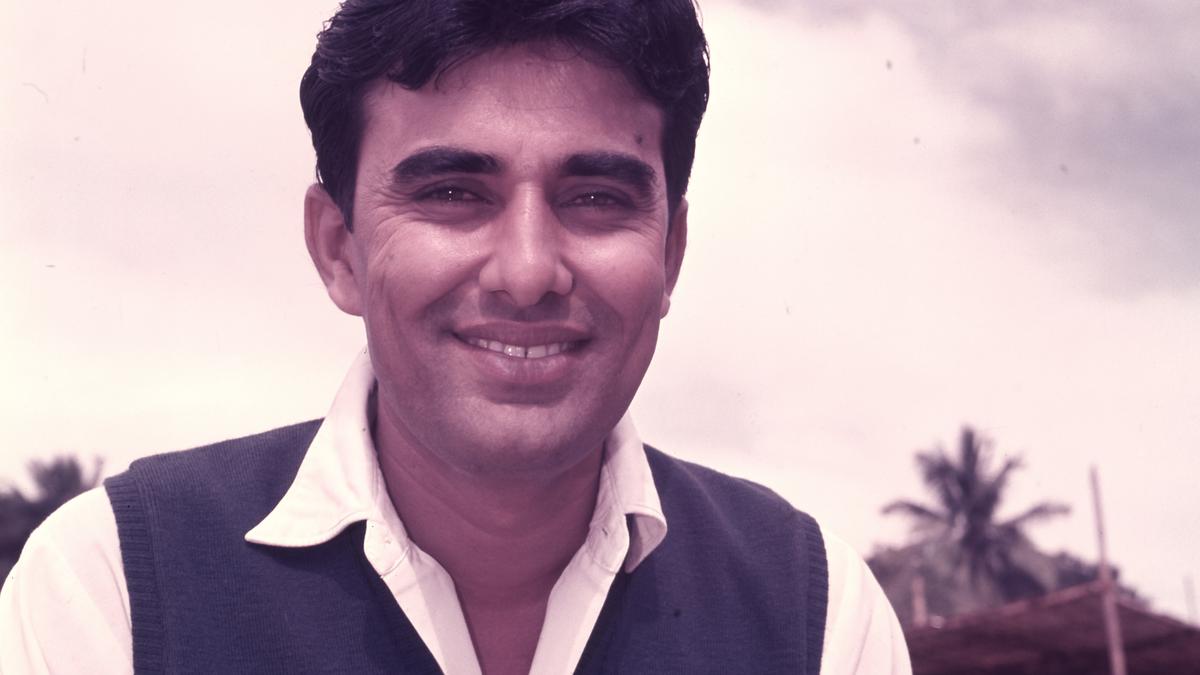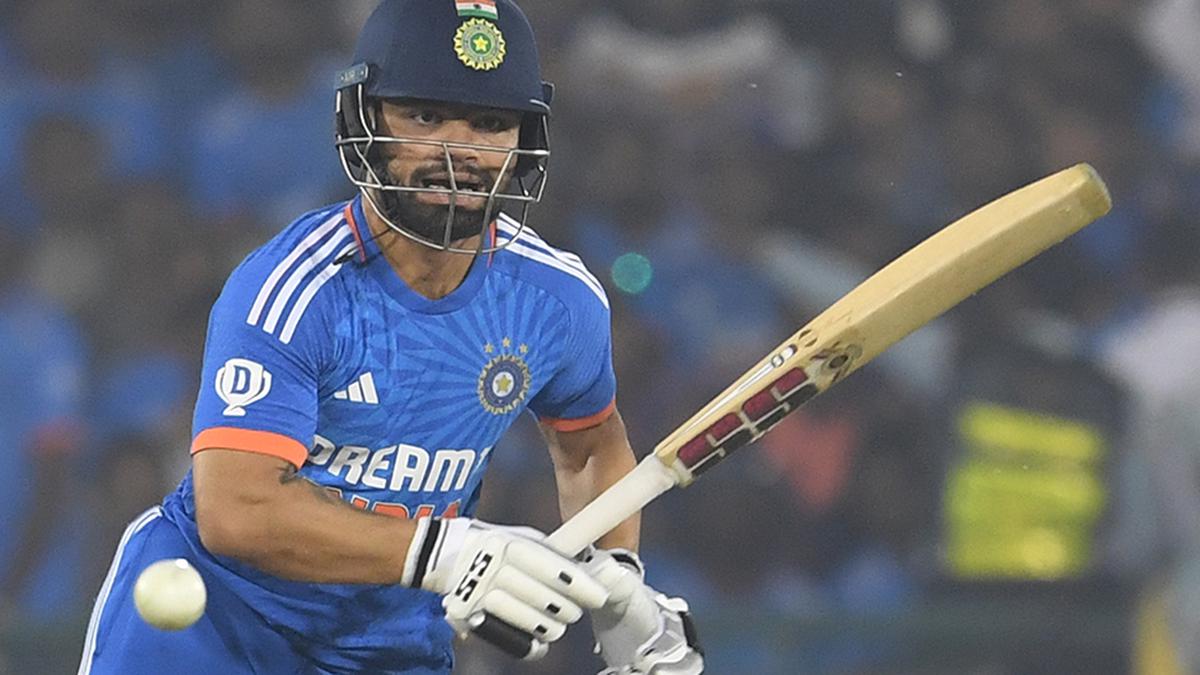Salim Durrani in 1967.
| Photo Credit: The Hindu Photo Archives
Sometimes an anecdote says more about a player than averages or strike rates. There’s a story here about cricketer Salim Durani hiding behind a newspaper in the team hotel to avoid meeting the chairman of selectors, Datta Ray. Relieved Ray had walked past, he then stretches his legs. And sends the official sprawling.

Salim Durani hitting a boundary in a match between India and England at Brabourne Stadium, Bombay, on January 21, 1964.
| Photo Credit:
The Hindu Photo Archives
Durani missed two Tests of the home series and the tours of England, Australia and New Zealand that followed as Ray accused him of deliberately tripping him. This says something about the player, the selector and the state of Indian cricket in the 1960s. The official was king and the players, mere pawns.
‘Destiny’s child’
In Ezekiel’s book, Salim Durani: The Prince of Indian Cricket, Durani was a man things happened to. When these were good things, he lived up to the author’s portrayal as ‘Destiny’s Child.’
Like all larger-than-life figures, Durani attracted stories around him that balanced on the verge of the possible. For years it was believed that he was born in Afghanistan. “I was born under the open skies in a caravan camp in the Khyber pass…” Durani clarified. If this were a book of fiction, would he be the unreliable narrator?

Salim Durani training budding cricketers in Jamnagar in January 2004.
| Photo Credit:
PTI
But this is a biography, and an overdue one at that, of one of India’s most colourful and talented players. Ezekiel has chosen his colours well to give us a portrait of a man with movie star looks who filled stadiums, but was easily misunderstood and often dismissed as wayward or temperamental. Tiger Pataudi, who led him in 15 of his 29 Tests once told me his biggest regret was not making full use of Durani’s talent.
But even his critics considered him a genius who won matches with his left arm spin or batting alone. Durani played an important role in India’s first series win against England (home), and 10 years later, hastened India’s first win against the West Indies (away).

Ezekiel follows Durani’s career with a scrupulousness and attention to detail that places the runs scored and wickets taken in the context of the bigger picture of Indian cricket.
It is difficult not to be a fan of a player who hit sixes effortlessly and bowled out the good and great consistently. Or paid for a bunch of friends to travel to Sharjah for his benefit match and then ran out of money because he bought them all expensive gifts.
Durani was unique, and Ezekiel tells you why.
Salim Durani: The Prince of Indian Cricket; Gulu Ezekiel, Rupa, ₹395.
The reviewer’s latest book is Why Don’t You Write Something I Might Read?.





